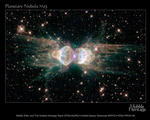Post-Graduate Programmes in Physics
Introduction
Thus, lack of knowledge turns out to be the principal cause for the lack of knowledge. To address this issue we have informally made a survey among the scientific community as to the good institutions in India for pursual of post-graduate studies in Physics (i.e. for Master's and Ph.D. degrees). The institutions have been chosen based on their research environment (i.e. on whether students will have the opportunity to interact during their studies with faculty doing research) and on their facilities. If you feel any other institutions should be added kindly contact us here.
The list of good institutions in India for post-graduate studies in Physics, and links to their websites, so that interested students may stay informed and updated on the admission procedures and the facilities offered. Students are encouraged to visit the home pages of all the institutions to find out more about them. Students are also advised to pay particular attention to
-
Admission procedures
-
Deadlines for:
-
Acquiring application forms
- Submitting applications forms
-
-
Facilities
-
Quota for students not hailing from the state of the institution
-
Scholarships
-
Fees for the courses at different institutions
Generally various institutions put up their announcements in December-January every year, and the deadlines for acquiring the forms start from February. The entrance examinations are held in the period of March to May. Also, the admission procedures differ for different institutions though the syllabii for their examinations remain more or less the same. For entry to Master's programmes the syllabi are similar to that for the JAM examination conducted by the IITs, while for admission to the Ph.D. programmes they are similar to that for the JEST examination conducted by a large number of research institutes in India. Sample question papers are provided here. Many institutions may require the students to appear for Personal Interviews based on their performance in the written examination, and finally the students are selected on the basis of their performance in both the written examination and the interview. (These are general remarks. Please check details of admission procedures, deadlines, etc. of each institution.)
Also, not all institutions offer the same courses and degrees. The degrees that these institutions offer can be broadly classified into:
-
M. Sc.
-
Ph. D.
-
Integrated M. Sc.-Ph. D.
The specialization subjects offered by the different institutions may also vary. Hence the student is encouraged to look through the websites of these institutions thoroughly before choosing the institutions they wish to apply to for admission.
We have listed some books that can be referred to at the B.Sc. and M.Sc. levels. The list is not complete and we have not tried to give a comprehensive guide. Please feel free to contact us if you feel that some additions or alterations could be done.
Many institutions have Summer Programmes for students who have completed their first year of M.Sc. These institutions are also listed. Some of these institutions also admit B.Sc. students for the summer programmes. If we have missed any institution kindly contact us here.
Regarding Ph.D. programmes, one may also consider doing a Ph.D. in Physics abroad. We provide here some information that may be useful for pursuing a Ph.D. in the U.S. More details of applying abroad, and other information on how to pursue a career in Physics, are contained in the essay "A Career as a Physicist" by Dr. R. Rangarajan.
A Career as a Physicist: This essay by Dr. R. Rangarajan of the Physical Research Laboratory, Ahmedabad provides information on pursuing a career in Physics. It discusses the course of study (B.Sc.-M.Sc.-Ph.D.) and (research-related) employment opportunities thereafter. A PowerPoint presentation on this topic developed by Dr. Bhas Bapat of the Physical Research Laboratory, Ahmedabad and Dr. R. Rangarajan is also available at the above link. Teachers and others are welcome to use this presentation.
Additional information on a Career in Astronomy and Astrophysics are available on websites of IUCAA and IIAP. (Since Astrophysics is a branch of Physics you are advised to also read the essay above.)
For interesting developments in science, you may check the websites of Vigyan Prasar, Resonance (a journal of the Indian Academy of Sciences) and Physics Education (a journal of the Indian Association of Physics Teachers).
Issues faced by women in science have been discussed at the following site of the Indian Academy of Sciences -- IAS-Women in Science . Recently a book on Indian women scientists entitled Lilavati's Daughters has been brought out by the Academy.
Advanced B. Sc. (Physics) Programme in Ahmedabad
The Advanced B.Sc. (Physics) Programme was initially a 6 semester programme run jointly by the Gujarat Science Academy (GSA), Ahmedabad and the Vikram A. Sarabhai Community Science Centre (VASCSC), Ahmedabad. The course included 6 semesters of coursework spread over three years (concurrent with the regular B.Sc. course) taught by faculty from the Institute for Plasma Research, Bhat, Gandhinagar, the Physical Research Laboratory, Ahmedabad and the Space Applications Centre, ISRO, Ahmedabad. During the summer vacations students did research projects at scientific institutions in Ahmedabad.
Currently the programme is conducted in the summer so as to make it accessible to students from outside Ahmedabad. For more details contact the Vikram A. Sarabhai Centre at (079) 2630 2914 or check the website at http://www.ipr.res.in/~mani . The Gujarat Science City and St. Xavier's College, Ahmedabad are also partners in this programme.
This website has been created as an activity of the Advanced B.Sc. Programme at Ahmedabad.
A similar programme for B.Sc. students called Research Education Advancement Programme (REAP) is run by the Bangalore Association for Science Eductation (BASE) and some research institutes in Bangalore.
The Homi Bhabha Centre for Science Education (HBCSE) at Mumbai also runs programmes for college students under the National Initiative on Undergraduate Science (NIUS).
